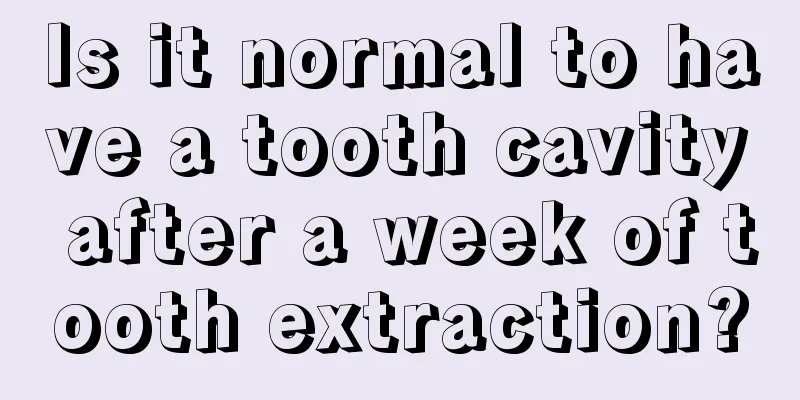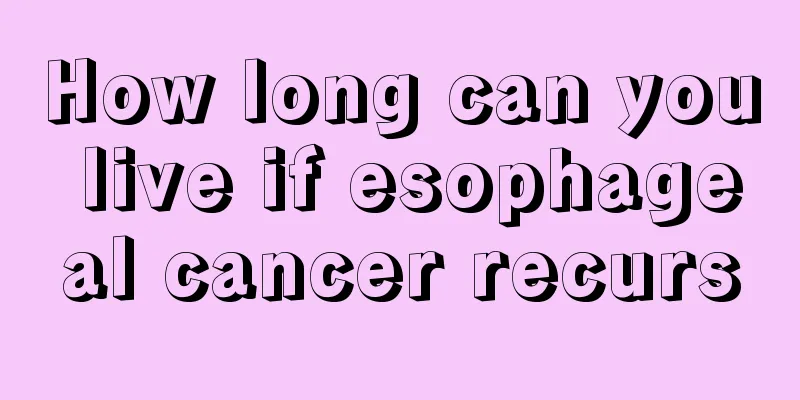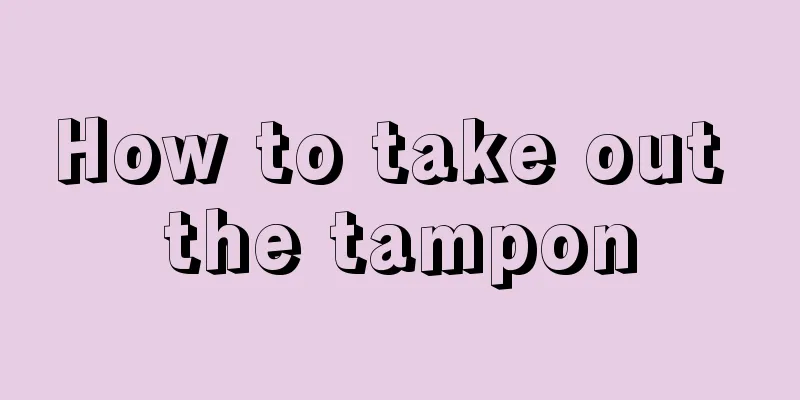Is it normal to have a tooth cavity after a week of tooth extraction?

|
As the saying goes, toothache is not a disease, but it can be fatal. Teeth, as the part for chewing food, are connected to our gums. Once abnormal toothache occurs, it often affects the gums and causes infection. Therefore, many people with abnormal dental conditions will choose to go to the hospital for treatment in time to reduce pain. Many people who went to the hospital to have their wisdom teeth removed found that a week after the extraction, there was still a hole on the tooth. What was going on? How long does it take for a hole to heal after wisdom tooth extraction? It takes about three months for a tooth cavity to heal! "In a regular hospital or dental clinic, the doctor will explain the above precautions to the patient after the tooth is extracted." However, few people ask about how the wound will heal next. But if you know this, it will be more conducive to self-care, pain relief, and smoother wound healing. It is reported that, generally speaking, it takes about 7 days for the blood clot in the wound to be replaced by granulation tissue. After half a month, the wound will be basically stable. After about a month, epithelial tissue will be formed. After that, bone tissue from tooth extraction will gradually form. "If a particularly deep 'hole' is left after extracting a wisdom tooth, don't worry about the gums at the wound not growing evenly in the future." In fact, the wound heals from the inside out, and the "hole" left by tooth extraction will basically heal flat after bone tissue is formed three months later. At this time, the worrying tooth cavities will basically disappear. During the process of the "tooth hole" healing, food residue will not affect the healing of the wound. On the contrary, paying too much attention to cleaning the residual food in the "hole" after tooth extraction is not conducive to the healing of the wound and should be paid attention to. What to do if there is a hole after wisdom tooth extraction It is normal to have a hole after removing an impacted wisdom tooth, but this hole will heal slowly over time, so patients don't need to worry too much. There is a hole after a tooth is extracted, just like an injury to a person's hand. As long as you pay attention to some matters, the wound on the hand will slowly heal. The same is true for the hole caused by wisdom tooth extraction. If you are worried about food residue getting stuck in the wound, this is not a big problem. The residue will be squeezed out after the wound heals. What to do when wisdom teeth hurt 1. You need to reduce inflammation first, take some medicine, and gargle with mouthwash or light salt water. However, it is recommended that you go to the hospital for a detailed diagnosis so that the right medicine can be prescribed. If the pain is caused by infection, it should be treated with antibiotics, and if it is in an abnormal position, it should be removed. When the pain is severe, bite a piece of ice to temporarily relieve it. 2. Pay attention to your diet. Don't eat spicy food, seafood, or eggs. Vegetables and fruits are fine, but a little lean meat is also fine. 3. Treatment (1) Recurrent pericoronitis. A blind pocket is formed between the soft tissue around the crown of the impacted wisdom tooth and the tooth, causing the accumulation of food and bacteria. When the resistance is reduced, pericoronitis is inevitable. General anti-inflammatory treatment only treats the symptoms and not the root cause, so pericoronitis will recur. (2) Tooth decay. Food debris easily accumulates between the mispositioned wisdom teeth and the second molars, and it is difficult to clean. Generally, caries can form within a few months, directly destroying the tooth tissue. (3) Impacted wisdom teeth often cannot establish a normal occlusal relationship with the opposing teeth. Over time, this can lead to symptoms such as clicking of the temporomandibular joint, pain when opening the mouth, and bruxism, which have a significant impact on the physical and mental health of young and middle-aged people. (4) There is evidence that some impacted wisdom teeth are the lesions of some cases of trigeminal neuralgia. What should I do if there is a hole after wisdom tooth extraction? How long will it take for the hole to heal after wisdom tooth extraction? Diseases caused by wisdom teeth Due to the special position of wisdom teeth, their cleaning and treatment bring many problems. Common diseases caused include caries, periodontitis, and pulpitis. Since wisdom teeth are at the innermost part, they are not easy to clean with daily brushing and are prone to tooth decay. Wisdom teeth often cause swelling and pain due to insufficient space for eruption, and they may also invade adjacent teeth and cause toothache. In addition, due to the lack of opposing teeth, wisdom teeth sometimes over-erupt, thus affecting the bite; sometimes they do not erupt enough and become impacted teeth, causing malocclusion, pericoronal infection, and difficulty opening the mouth. Wisdom teeth are the third largest molars and have an important impact on the adjacent second molars. Since most wisdom teeth are impacted and tilted forward, they press on the second molar at an angle of about 45 degrees, forming a crown angle that makes it easy for food to get stuck. Over time, this can lead to caries of the second molar or even pulpitis. Even if it is not that serious, it can affect the lifespan of the second molar. Things to note after wisdom tooth extraction 1. Follow the doctor's advice. After tooth extraction, bite the sterilized cotton ball or gauze pressed on the wound to compress the wound and help stop bleeding. Hold on for half an hour before spitting it out. This is because the blood in the wound after tooth extraction may form a blood clot within half an hour. If you spit out the cotton ball or gauze in advance, bleeding is likely to occur; after tooth extraction, do not touch the wound with your fingers, because there are a large number of pathogenic microorganisms on your fingers, which can easily cause infection of the tooth extraction wound and destroy the blood clot that has formed. 2. Generally, you should not rinse your mouth or brush your teeth within 24 hours after tooth extraction. About 24 hours after tooth extraction, local fibroblasts extend and grow from the alveolar bone wall toward the blood clot, and gradually organize the blood clot to make it firm and solid. If you are in a hurry to rinse your mouth and brush your teeth, you may rinse or brush away the blood clot and cause further bleeding, or cause an empty tooth socket and lead to unbearable pain "dry socket", which will prolong the healing time. You should also be careful not to lick the wound with your tongue frequently or suck it hard to prevent wound damage and infection, or cause the blood clots on the wound to fall off, affecting the coagulation process and causing continuous bleeding. 3. You can eat two hours after tooth extraction, but you should eat liquid food. Do not drink hot water or eat too hot or hard food. Hot food can cause blood vessels to dilate and make them prone to bleeding; hard food is a mechanical irritation to the wound, which can cause bleeding and aggravate the injury, so it should be avoided. |
<<: Can winter melon still be eaten if it is frozen
>>: Fat people’s summer outfits
Recommend
Is it okay to wash your face with tap water?
Washing our face is something that each of us doe...
My throat is itchy and I cough in the middle of the night
Everyone hopes that they can have super high-qual...
What causes mouth ulcers? How to treat it?
Oral ulcers are a common oral disease in clinical...
Do you know about psychological counseling for high school students who are tired of studying?
High school is the prime of life, and this period...
Practical self-treatment for chronic nephritis?
Nephritis is a disease with a very high incidence...
What are the dangers of thyroid nodules
The harm caused by thyroid nodules is relatively ...
Will eating too much red meat cause colon cancer? Remember a few dietary principles to prevent colon cancer
Intestinal cancer is a type of cancer that occurs...
Is the soft tissue density shadow a tumor? Four points to tell you
The imaging diagnosis of soft tissue tumors is an...
There is a hard lump on the child's ear. What's wrong? It doesn't hurt or itch.
If a child has a hard bump on their ear that does...
What is the reason for sweating above the mouth
It is normal for the body to sweat due to fever, ...
Tumor recurrence after surgery is a "time bomb". Here are two tips to help you defuse it!
There is no medicine that works immediately, espe...
How to detoxify the large intestine effectively?
We all know that the large intestine is one of th...
What is 300 degrees of myopia
Myopia has become an increasingly serious eye pro...
What to do if your stomach hurts when doing sit-ups
Sit-ups are a type of exercise that many people d...
What are the symptoms of primary biliary cirrhosis
Biliary cirrhosis is a common hepatobiliary disea...









